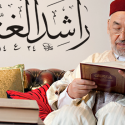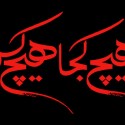It has become common to suggest that the West should reach out to nonviolent Islamist political movements in the Arab world and integrate them in its democracy promotion efforts. Two major factors have contributed to the apparent shift in American and European perceptions, from an overall stigmatization of Islamists as irrational fanatics after 9/11 to an operative distinction between violent and nonviolent, radical and moderate actors: the problematic path of Arab democratization, and the newly discovered pragmatism within the Islamist spectrum. However, both the United States and Europe have yet to articulate clear policy guidelines that structure their encounter with Islamist movements. Existing doubts about the degree of the movements’ commitment to democratic reforms and the real intentions behind their pragmatism hamper attempts to move ahead in the direction of engaging them.
The absence of viable opposition movements with sustainable popular constituencies represents a persistent dilemma of democratic transformation in the Arab world. Reforms in authoritarian regimes never derive from the impulsive noble motivations of autocratic rulers. International efforts to promote the cause of democracy in countries where the tradeoffs of undemocratic governance continue to be bearable for the ruling elites are bound to fail. Without the formation of far-reaching opposition alliances, the autocrats between Morocco and Bahrain might eventually manage to do away with current western pressures, either by inventing a “theater of democratization” based on cosmetic reforms or by publicly discrediting American and European calls for democracy as acts of foreign aggression against the national sovereignty of Arab countries.
Western democracy-promotion policies and programs of the past several years have looked to Arab liberals as strategic partners, anticipating that they will be able gradually to contest the dominance of authoritarian regimes and force democratic concessions. To be sure, there is more than one good reason for the United States and Europe to support liberal parties and secular NGOs across the region. Normatively and politically, Arab liberals have embraced the western political value system with its three pillars; universal citizenship, democracy, and rule of law. Their objectives are identical with western aspirations for tolerant, pluralist Arab societies. They speak a language that is understandable and trustworthy in American and European policy and intellectual communities.
The dilemma of Arab liberals, though, is their marginalization back home. Contrary to their celebrity status in the West, in the “real world” of the Arabs liberal actors remain incapable of reaching out to considerable constituencies in their societies or of substantially influencing political developments. Left with ruling elites primarily interested in preserving power and with weak liberal opposition actors, the United States and Europe have no choice but to try collaborating with other forces on the Arab political scene if they are serious about promoting democracy in the region.
Non-violent Islamist movements such as the Egyptian and Jordanian branches of the Muslim Brotherhood and the Moroccan Justice and Development Party are well rooted in the social and cultural fabric of Arab countries and possess therefore a great potential for forging broad alliances for political transformation. On the other side, recent changes in Arab Islamist political movements have made it easier for western countries to engage some of them. Throughout the last decade the mainstream of Islamist movements has been moving toward more pragmatism, based on prioritizing gradual democratic reforms as the way ahead for their political integration and as the only viable strategy to challenge the persistent authoritarianism in the Arab world. Furthermore, the new pragmatism among non-violent Islamist movements materializes in an atmosphere of relative openness toward American and European policies in the Arab world, and an initial willingness to engage them less ideologically. Especially for the United States, this change represents a preferable setting for reaching out to the most popular opposition actors in the Arab world and developing a minimum of strategic ties.
But the challenge facing moderate Islamists is the continued determination of Arab regimes to contain or exclude them from the political sphere, even in the context of a gradual reform process. The fear of Islamist popularity structures official policies toward them. In spite of their continued containment and exclusion in the last few years, moderate Islamists have not questioned their strategic choice for gradual political reforms. Arab regimes have long secured the support or at least the silent approval of the United States and Europe for their repressive measures toward Islamist movements by evoking the so-called Algerian syndrome or the nightmare of anti-western fanatics coming to power through the ballot box. However, Arab politics has changed a great deal since the beginning of the 1990s. At present, excluding non-violent Islamists from the political sphere weakens the chances of democratic transformation in the region more than anything else.
In the last few years, Arab liberals have been gradually reaching out to moderate Islamists and engaging them in campaigns calling for reforms. Secular-religious national alliances for democracy are instrumental in contesting authoritarian state power and articulating popular consensus over the need for political transformation. Islamists, on their side, have seized the integration opportunity and positioned themselves at the heart of growing opposition movements across the region. In Morocco, Lebanon, and Egypt differences between liberals and Islamists remain relevant, but the degree of their convergence over national priorities is systematically growing.
These are steps in the right direction. Democratic opposition platforms are by far more effective with Islamist participation than without it. The United States and Europe should move forward in the same direction of engaging moderate Islamists. The cause of political transformation in the region is best served by bringing in Islamist movements and their popular constituencies.
Published 2/6/2005 bitterlemons-international.org
Amr Hamzawy is a senior associate at the Carnegie Endowment for International Peace. He previously taught Middle East politics in Cairo and Berlin.




In that spirit I have just written to the President of the US, well to his white house office at least.
__________________
Mr President,
The dominating feelings after the dictator fled and the speaker of the parlament was sworn in was HOPE and CHANGE. Ok, a bit of anxiety too, we are after all facing the unknown: Democracy, freedom of expression and the ability to walk with a straight back.
Now, the dictator had allied himself with you. He convinced you he was a shield between the west and islamic terrorism. You can argue that post 9/11/2001, with your responsability to the American people, you could take no risk. I could argue back that he has been supported by the west since the 1980s… all that would be academic. What isn’t academic is that a dictator who had a country in an iron grip for 23 years, has fallen after 23 days of peaceful protests. Some shield it was!
The Europeans argue that they supported him because under his enlightened rule the Tunisian economy has grown. Now, I have read the cables from the US ambassador in Tunisia, so you must have done it too. In fact, the Tunisian economy has grown despite the unprecedented corruption of the dictator and his in-laws, not thanks to them.
All that is history. I am writing to tell you not to panic! There will be, there should be a political party with islamic tendancies in the parlament after an election. Without such a party the political spectrum in Tunisia will not be representative. If it is not representative, it is not democratic. If it is not democratic, it is not legitimate. If it not legitimate, my countrymen would have died in vain.
Do not underestimate the maturity of the Tunisian people (again). Your intelligence agencies have dissicated every frame of every amateur video taken during the revolt, did they see any green flag ? Did they hear any islamic slogan ? Did they see any bearded guy ?
See the CDU party in Germany (C is for Christian), they are not exactly dominionist are they ? You would not be concerned with a Scandinavian country because Kristendemokraterne have a two digit vote result. The same attitude should be yours towards Tunisia and an openly islamic party.
The choice is simple: It is between palamentary islam and militant islam. Worst case scenario is a president from a moderate muslim party… like Turkey, your NATO ally.
Your truly,
PS: The external threats are one the other hand real: We have a neighbour to the east, who, to say it diplomatically, is nuts.